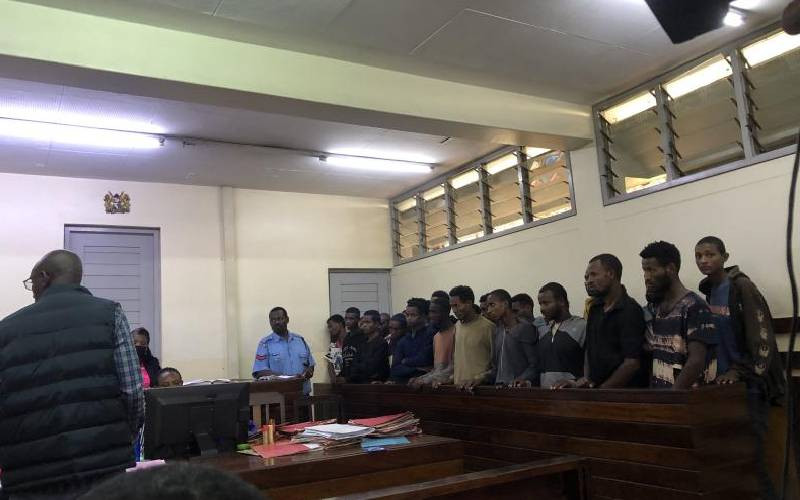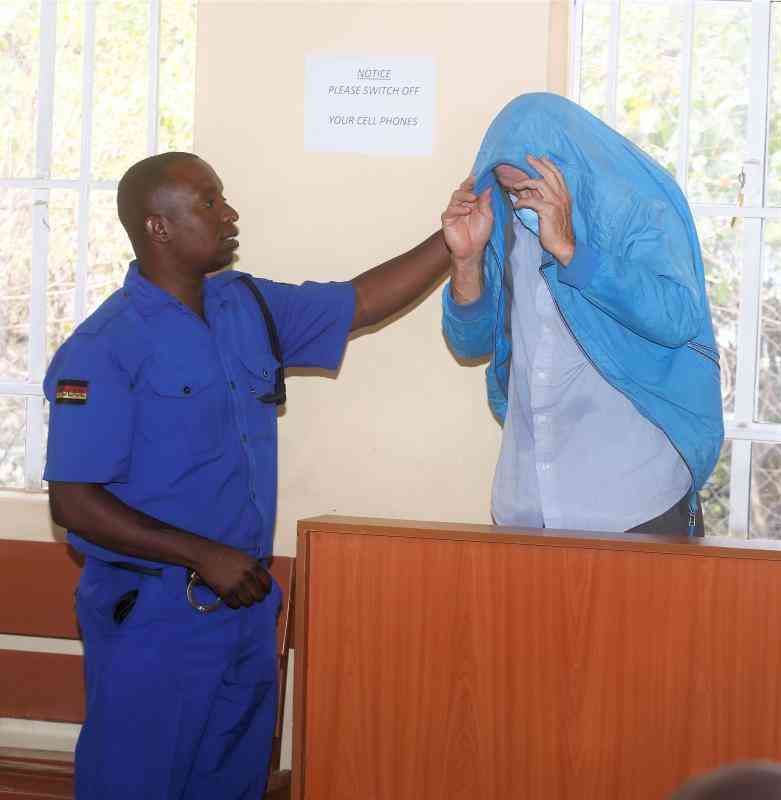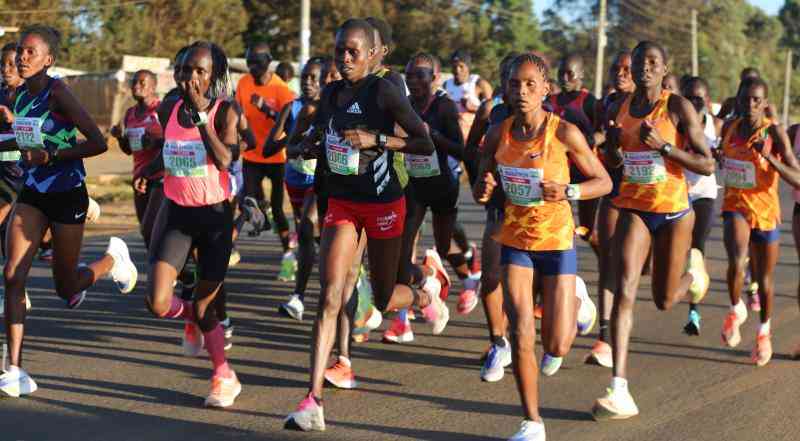When the moderator at the recently marked African Day Celebrations asked some youth in attendance to explain what they understood by human trafficking, the fumbled responses elicited laughter from other participants.
The bewildered faces of the panelists and other attendants at the event organized by African Rising organisation illustrated their shock that the phrase was nothing but a vocabulary to the young persons. The meaning was distant from them yet they were potential victims of the illegal transit of people from one place to another.
But their brilliant faces turned forlorn when Mariam Yusuf, a single mother of four who fell victim of the vice, shared her chilling experience.
Ms Yusuf who said she was still nursing injuries she sustained while working under inhumane conditions in captivity in Saudi Arabia, struggled to rise to her feet, earning a look of pity from attendants.
“It was in 2001 when I searched for employment to cater for my children. I met with a man who posed as an agent with connections to employment outside the country,” she said in Kiswahili as attentive faces paid keen attention.
The offer, said Yusuf, was very tempting. Her job was to earn her a monthly income of Sh30,000 and was not subject to any tax. Excited, she quickly cooperated with the agent she only knew as “Mwinyi” before she embarked on her journey to the foreign land.
On the day of the flight, she became suspicious of the deal after her agent thrust her the documents written in Arabic and instructed her to quickly sign before boarding the waiting plane.
“I realized that in the passport, where I had indicated as housewife had been changed to housekeeper. I tried asking but he told me to focus on the job ahead,” narrated Yusuf while wrinkling her hands as she fought back tears.
The strange Arabic language used in the documents was a foreshadow of the incomprehensible tribulations she was yet to face in the foreign land.
The flight took off and when she landed in the foreign land, her handlers ushered her into a room where she met other Kenyans and other nationals waiting for their arranged employers.
At around 8pm, she says, her employer, a woman she does not remember mentioning her name arrived and snatched her everything including phone and passport before whisking her away.
It was the beginning of her awakening that her expectations had been thwarted. Instead of babysitting two children as she had been told by the agent, the moment they got into the house of her employer, she was ordered to start cleaning the house and utensils.
“I cleaned the house and utensils until 1am when I was given a blanket to use as a mattress and to cover myself,” Yusuf painfully narrated.
It dawned on her that she had been duped into believing that she was just a baby sitter. She was actually in charge of eight children, tasked with cleaning the house and utensils at the woman’s house and another house belonging to her employer’s mother.
“My salary was also revised to Sh18,000. I was denied phone access and I worked for five months and had chest pains,” she says.
Stay informed. Subscribe to our newsletter
Attempts to return to Kenya were futile as her employer insisted that she worked for three months under no pay to earn her freedom.
Despite her pain on the chest, spinal cord, her left leg as well as her right hand, she worked to earn her freedom. Her tormentor only provided paracetamol tablets for her treatment and refused to take her for medication, she said.
She was lucky when she finally earned her freedom and was cast into plane empty-handed where the tormentor paid for her flight back.
Yusuf, now a small scale trader in Mtwapa in Mombasa is among millions of desperate Kenyans who have suffered outside the country as they try their luck due to the rising unemployment in the country.
According to Michele Koinange, a Network Coordinator at Stop the Traffic Kenya, lack of awareness on the existing human trafficking coupled with unemployment had rendered many Kenyans vulnerable.
The United Nations Office on Drugs and Crime (UNODC) 2018 report on trafficking in persons shows that victims from Sub-Saharan Africa were the second largest with 855 in 2016 after East Asia with 901 reported cases.
Victims from South Asia were 449, while Europe and Central Asia 109 followed by North Africa and Middles East and Americas with 94 and 67 respectively.
The report further shows that Kenya has also been a destination for some persons trafficked in for forced labour. Among them were 267 trafficked for forced labour while 7 were subjected to sexual exploitation.
According to Michele Koinange, a Network Coordinator at Stop the Traffic Kenya, lack of awareness on the existing human trafficking coupled with unemployment had rendered many Kenyans vulnerable.
The African Day was created by the Organisation of African Unity (OAU) in May 25 1963 to champion for the liberation of Africa against foreign ideologies.
As the youth poured questions on Yusuf regarding trafficking, there was no more laughter. They wanted answers and one challenged the panelists consisting of representatives of Non-Governmental Organizations to reach out to desperate youth.
 The Standard Group Plc is a
multi-media organization with investments in media platforms spanning newspaper
print operations, television, radio broadcasting, digital and online services. The
Standard Group is recognized as a leading multi-media house in Kenya with a key
influence in matters of national and international interest.
The Standard Group Plc is a
multi-media organization with investments in media platforms spanning newspaper
print operations, television, radio broadcasting, digital and online services. The
Standard Group is recognized as a leading multi-media house in Kenya with a key
influence in matters of national and international interest.
 The Standard Group Plc is a
multi-media organization with investments in media platforms spanning newspaper
print operations, television, radio broadcasting, digital and online services. The
Standard Group is recognized as a leading multi-media house in Kenya with a key
influence in matters of national and international interest.
The Standard Group Plc is a
multi-media organization with investments in media platforms spanning newspaper
print operations, television, radio broadcasting, digital and online services. The
Standard Group is recognized as a leading multi-media house in Kenya with a key
influence in matters of national and international interest.









